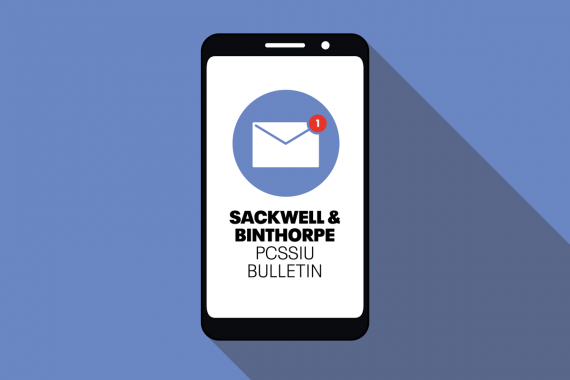Welcome to another edition of the Primary Care Support (PCS) ebulletin from the Sackwell & Binthorpe ICS. I’m Penny Stint, head of the PCS system integration unit (PCSSIU).
Since we started sharing this newsletter, several of you have asked questions such as: ‘Who are you?’, ‘What do you actually do?’ and ‘Why are you still sending me this?’
It’s always great to get this kind of feedback, so I thought I’d start this week with a simple role explainer covering our work at the PCSSIU.
I work closely with system integration colleagues and professional interface managers at neighbourhood, place, system, subregional, regional and national levels to ensure that integration is fully aligned and co-ordinated across organisational boundaries and beyond.
Our aim is three-fold. Firstly, that the health and care system is more fully integrated than it has ever been, with the ultimate goal of making the NHS the most integrated health service in the world. Secondly, that all service users, carers, people and communities have equal access to integration regardless of their background, ethnicity, personal circumstances or where they live. And thirdly, that the experience of integration is the same for everyone who uses or works in the NHS.
That doesn’t mean, of course, that integration will be exactly the same everywhere. Each ICS will be responsible for implementing the national guidance as it sees fit (see the related guidance on Local Freedoms and the Autonomy Specifications and Limitations Framework for further details). The ICS will be empowered to work with local professionals, people and communities to co-produce the model of integration most appropriate for that system. It will be the responsibility of integration teams like mine to ensure that the core principles of uniformity and consistency go hand in hand with the twin aims of local determination and planned divergence, and that we communicate the strategic trajectory to stakeholders clearly at all times.
Do let me know if you have any questions.
Leadership guidance and the art of the possible
I like to think of clinical leadership as the golden stream that runs through ICS development, so I was delighted to see that NHS England and NHS Improvement has published new guidance to support emerging systems to create thriving leadership environments and proactive development pipelines.
You are strongly recommended to read the document for yourselves (it’s just 24 pages). Please complete the form confirming that you have read the guidance and feel free to take the mandatory fun quiz to self-assess your individual learning quotient (ILQ). We’ll be circulating this with our latest bite-size guide for leaders (How to Let Go: Top Tips for Empowering Teams) in the next week or so.
Meanwhile, here is a summary of key takeaways from the leadership guidance.
Leadership is not ‘telling people what to do’. Nor is it telling them how to do it. It is the art of the possible. The role of the guidance is to provide ‘helpful framing’ not ‘information’.
The guidance was informed by a national engagement exercise involving 2000 people and an Insight Discovery and Capture Tool (IDCT) or ‘questionnaire’.
It makes the case for lean, efficient decision-making by small groups of leaders working collaboratively. Their job is to cut through needless bureaucracy and reach the consensus needed to ‘get things done’.
What ‘things’ and ‘done’ look like are matters for local determination.
The guidance draws on expertise from a steering group of 22 experts from organisations with a strong track-record of effective leadership and streamlined decision-making, namely the Department of Health and Social Care, NHS England and NHS Improvement, the NHS Confederation, several hospital trusts and a CCG.
Among the ‘asks’ for the ICS are that we publish a framework, plan and strategy for embedding leadership at every level of the system. Nobody should feel excluded from leadership or denied the opportunity to seek a leadership role, including those who do not currently aspire to one or say they prefer to be ‘left to get on with their job’.
The plan must also demonstrate compliance with the principles of leadership set out in the guidance. These include:
- Having a defined and credible leadership support offer with robust indicators and measurable outcomes (please use the Excel template provided)
- Stopping doing things that are not working and, where possible, not starting them
- Setting the expectation that staff at all levels will become leaders. Leadership should be distributed and collaborative, rejecting ‘old power’ paradigms such as the notion that someone is ‘in charge’ or ‘knows what to do’.
- A regular stocktake to ensure that everyone feels ‘part’ of the system, is already a leader or is in the leadership pipeline, is a member of a forum or has taken part in a recent engagement exercise. (These are the minimum requirements. System leaders are expected to identify many more leadership maturity indicators)
- Having clearly defined and regularly refreshed ‘asks’ that everyone commits to and delivers on in regular leadership-themed discussions and meetings
- Continuing to provide high-quality patient care, making general practice a great place to work again, preventing staff burnout, dealing with hostile and abusive members of the public, working with colleagues to reduce the treatment backlog, helping with the construction of new hospitals, and resuming a level of face-to-face appointments acceptable to patients and the national news media while being demonstrably and measurably involved and invested in leadership programmes.
I’m sure you’re as excited as I am to see the ICS focusing resolutely on leadership development opportunities and look forward to seeing your draft plans no later than 5pm next Monday.
Penny Stint is primary care enablement lead for the Primary Care Support and Strategic Integration Unit (PCSSIU) at the Sackwell & Binthorpe ICS. As told to Julian Patterson
Pulse October survey
Take our July 2025 survey to potentially win £1.000 worth of tokens















Brilliant!
‘Golden stream’ 😉
Brilliant. Yes, every NHSE leader paradoxically needs a steering group. For more leaders, who need steering.
I love this